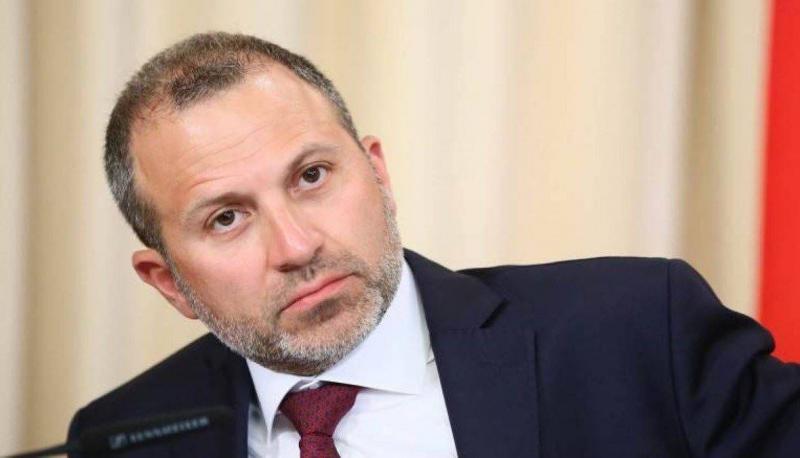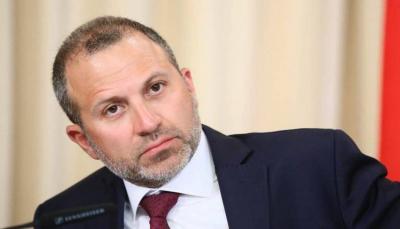It is still unclear how the dispute between the head of the "Free Patriotic Movement," Gebran Bassil, and Deputy Speaker Elias Bou Saab will conclude. Additionally, it is not obvious nor confirmed whether the storm generated by the decision to dismiss Bou Saab, which was signed by Bassil, will end without repercussions for "Strong Lebanon Bloc" and the political body.
Within the "Movement," there is no consensus regarding the legitimacy of the action taken against Bou Saab, neither in form nor content. Bou Saab’s approach differs from many colleagues within the parliamentary bloc and the "Movement." Over the years of his political engagement and his position as Deputy Speaker of Parliament, he has managed to establish his presence, achieving rapprochement with various political factions. His connection with the "Movement" and its leader has experienced moments of disagreement and varying opinions that have not fundamentally harmed their relationship. Bou Saab has not consistently adhered to the bloc's decisions nor has he always aligned with his leader's political orientations. He has prioritized his own perspectives and approached matters from a broader viewpoint over party commitment, consciously maintaining a distance that highlights his divergence, stemming from a national background.
The ongoing political and media turmoil is met by Bou Saab with a calculated calm, deliberately avoiding unproductive arguments, particularly since the manner and timing of the announcement do not necessarily favor the head of the "Movement," as it has opened up an internal discussion that may elicit varying positions from members of "the Bloc," who have been mentioned as potentially sidelined by Bassil for not adhering to his directives.
Despite mediation attempts and efforts towards reconciliation, it is evident that the manner of handling the issue deepened the dispute, especially since the dismissal decision has been pending for a long time. Bassil had previously informed the Deputy Speaker about it, indicating that he was in possession of the ruling and did not intend to sign it; so, what has changed? Who chose the timing? What are the considerations? Does Bassil intend to initiate a reform process within "the Movement" and the Bloc at this current juncture? What would the implications of such a process be for "the Movement" and its electoral standing in the next election cycle, especially when minor amendments to the current electoral law are being called for?
The decision against Bou Saab has put many of his colleagues in "the Bloc" and the "Movement" in a difficult position. There are those who sympathize with him without harboring animosity towards Bassil, even if they disagree with him. These individuals find themselves forced to choose a side between Bassil and Bou Saab to ensure their ongoing relevance. What Bou Saab has faced may befall others among the deputies, a sentiment echoed both within and outside "the Movement" that remains unrefuted. Bassil’s comments about traitorous hands and disloyalty have prompted various interpretations, but none apply to Bou Saab, who is noted for his silence during over two years of crisis.
Reports indicate that there are efforts underway to bridge the gap between the two parties following their recent stormy meeting, which came after a request from President Michel Aoun. This session of reproach revisited old and new grievances, touching on what has reached Bassil’s ears regarding Bou Saab’s back-room dealings with the Americans, extending to his voting in the recent presidential election session, which contradicted Bassil's directives and the obligations of Bloc deputies.
Bou Saab has demanded a public apology, while Bassil believes that the disagreement can be overlooked if there is a confirmed commitment to adhere to the decisions he issues. Bassil has long complained about Bou Saab's behavior and continuous meddling, asserting that it negatively influences his decisions within the Bloc and amplifies his critics, while the Deputy Speaker perceives himself compelled to align with his own convictions. For him, voting for Jihad Azour was not seen as a correct decision, nor was he close to the possibility of endorsing Bassil for the presidency; rather, he believed that if there were to be a candidate from "the Movement," it should be based on the premise "me or no one." He sees two candidates within "the Movement" who possess chances of being endorsed more appropriately than others who lack the qualifications for such endorsements.
What has occurred is not merely a routine action and cannot be easily overlooked, considering Bou Saab's position as Deputy Speaker of Parliament and his close friendship with Bassil until recently. Since his election as a deputy at the beginning of his career on "the Free Patriotic Movement" list, he has been deeply integrated into it, and there is no doubt that he has managed to enhance his presence in his region, potentially creating an electoral bloc in collaboration with other candidate deputies, given the current law's situation. This development would diminish the resources available to "the Movement" in that area.
The rift between Bassil and Bou Saab is profound, and their relationship has fractured beyond repair. Notably, there is a striking silence from both parties directly involved, while mediators hustle between them, racing either to bring the details of the conflict to light or to succeed in the reformative efforts.




